PsychNewsDaily Publishers
100 Summit Drive
Burlington, MA, 01803
Telephone: (320) 349-2484
PsychNewsDaily Publishers
100 Summit Drive
Burlington, MA, 01803
Telephone: (320) 349-2484
Louisiana offers various mental health support options including hotlines, community centers, and university programs, providing counseling and crisis intervention at no cost to eligible individuals.
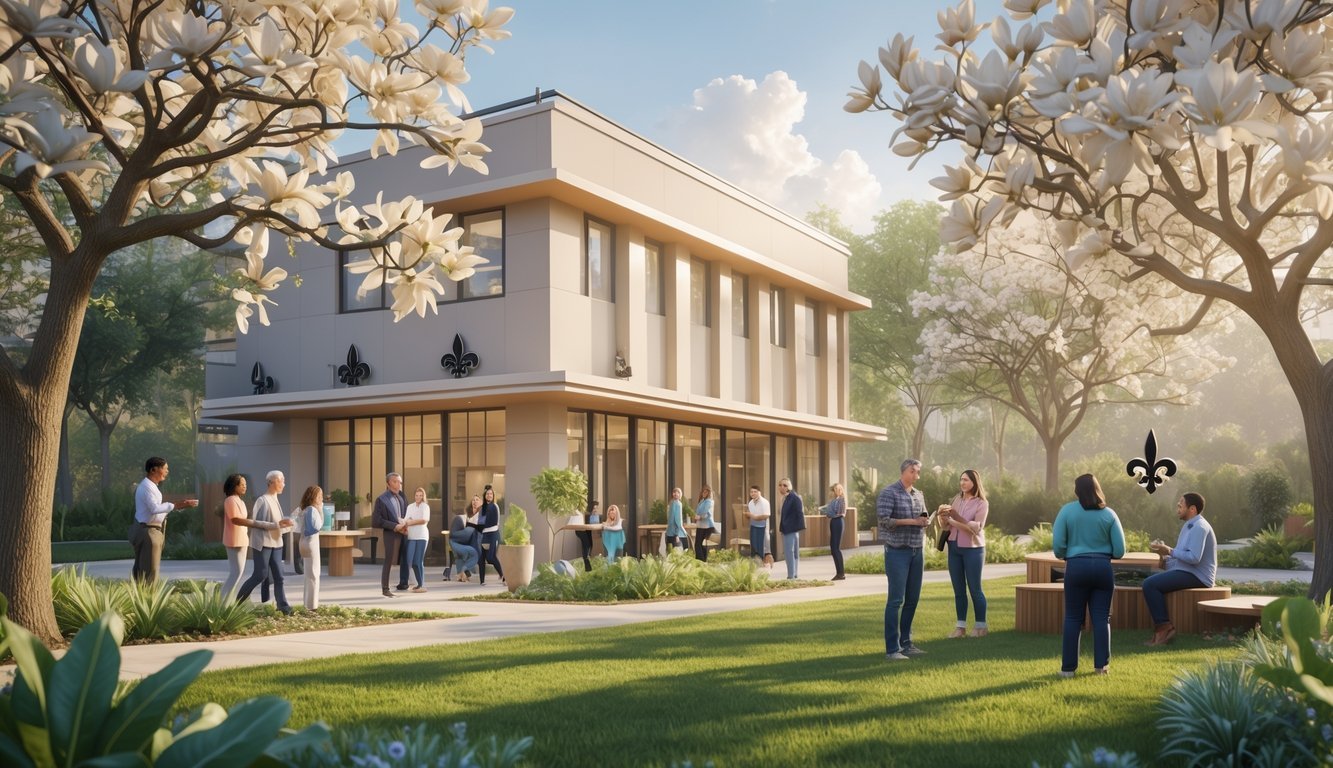
Mental health support shouldn’t drain your wallet. In Louisiana, you can find a bunch of free mental health services through state programs, community centers, and local healthcare systems. These options help you get care without stressing about the cost.
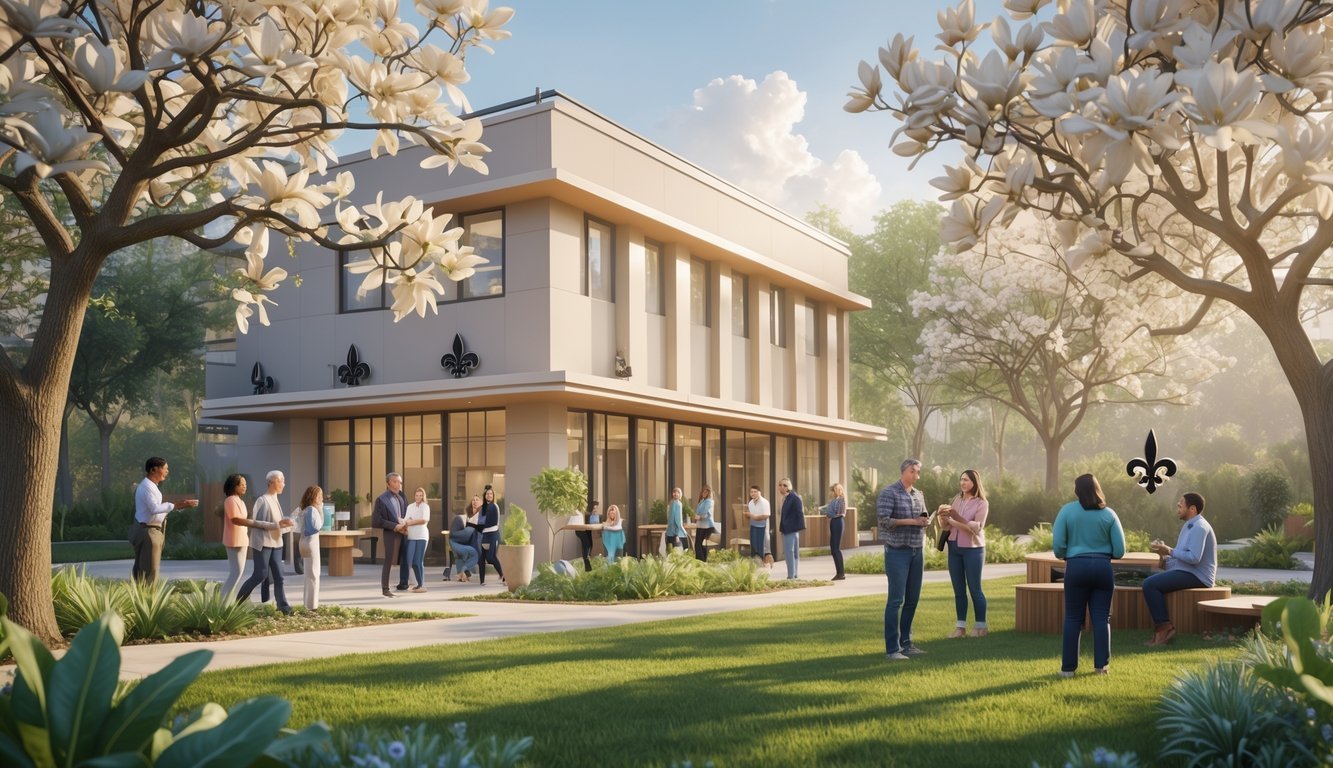
You can access free mental health services in Louisiana through state-funded programs, community health centers, university resources, and veteran services. These groups offer counseling, crisis support, and ongoing treatment at no cost. The Eastern Louisiana Mental Health System runs over 693 licensed inpatient psychiatric beds and outpatient services. Universities like UL Lafayette give students 24/7 mental health access.
Trying to find the right free mental health service can feel like a lot, especially when you’re already having a rough time. This guide breaks down the different kinds of support, shows you how to get started, and points you toward organizations that can help you take the first step.
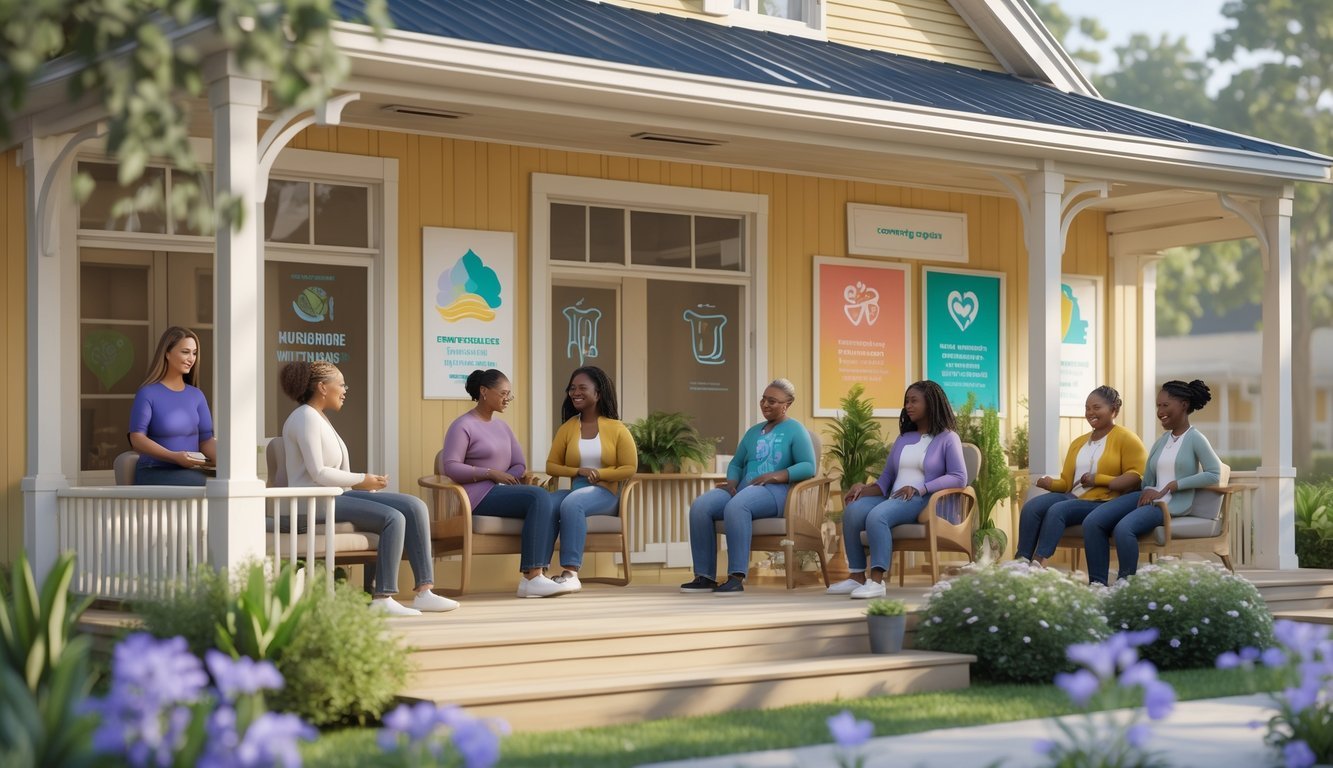
Louisiana gives you several ways to get no-cost mental health support. These range from hotlines for immediate help to ongoing therapy programs.
You can reach out to emergency hotlines, visit community-based treatment centers, get individual counseling, or join peer support networks. Options are available all over the state.
You can call trained crisis counselors any time, day or night, using Louisiana’s statewide crisis hotlines. These hotlines give you help right away during mental health emergencies.
The 988 Suicide & Crisis Lifeline puts you in touch with local crisis centers across Louisiana. You can call, text, or chat online for free.
Louisiana Spirit runs a crisis line for disaster-related mental health needs. If you’re dealing with trauma from hurricanes, floods, or other disasters, this program is there for you.
Many hotlines offer support in both English and Spanish. Crisis counselors can also connect you with local emergency services if you need urgent medical help.
Key hotline features:
Louisiana runs community mental health centers that give free services to people who qualify. These centers often serve as your main spot for ongoing mental health care.
The Eastern Louisiana Mental Health System operates over 693 inpatient psychiatric beds, plus outpatient services. Adults across the state can get evaluations, treatment, and consultations here.
To qualify, you usually need:
Services include psychiatric evaluations, medication management, one-on-one therapy, and group counseling. Some centers also have programs for substance abuse.
You can apply directly at these centers. Staff will help you with the paperwork and set up your first appointment.
Some universities and training centers in Louisiana offer free counseling through their psychology departments. Supervised graduate students provide these services, so you get care at no cost.
LSU’s Psychological Services Center gives affordable mental health care to the community. Advanced psychology students, under supervision, handle your treatment.
Types of therapy you might find:
Many programs focus on things like anxiety, depression, or relationship struggles. Sessions usually last about 50 minutes and happen weekly.
You’ll typically need to do an intake assessment before starting therapy. Wait times can change based on demand and staff availability.
Some religious groups also provide free faith-based counseling. They blend therapy techniques with spiritual support.
Peer support groups bring you together with others facing similar mental health challenges. These free groups meet in community centers, hospitals, and religious spaces all over Louisiana.
Common group types:
NAMI Louisiana (National Alliance on Mental Illness) holds free support groups in several cities. You can join family-to-family education programs or peer meetings.
Many groups follow a set format with trained facilitators. You get a chance to share your experiences and learn coping skills in a private setting.
Online support groups have become more common since 2020. You can join these meetings from home on your computer or phone.
Hospital systems and community centers often run support groups. Check with your local center for details and meeting times.
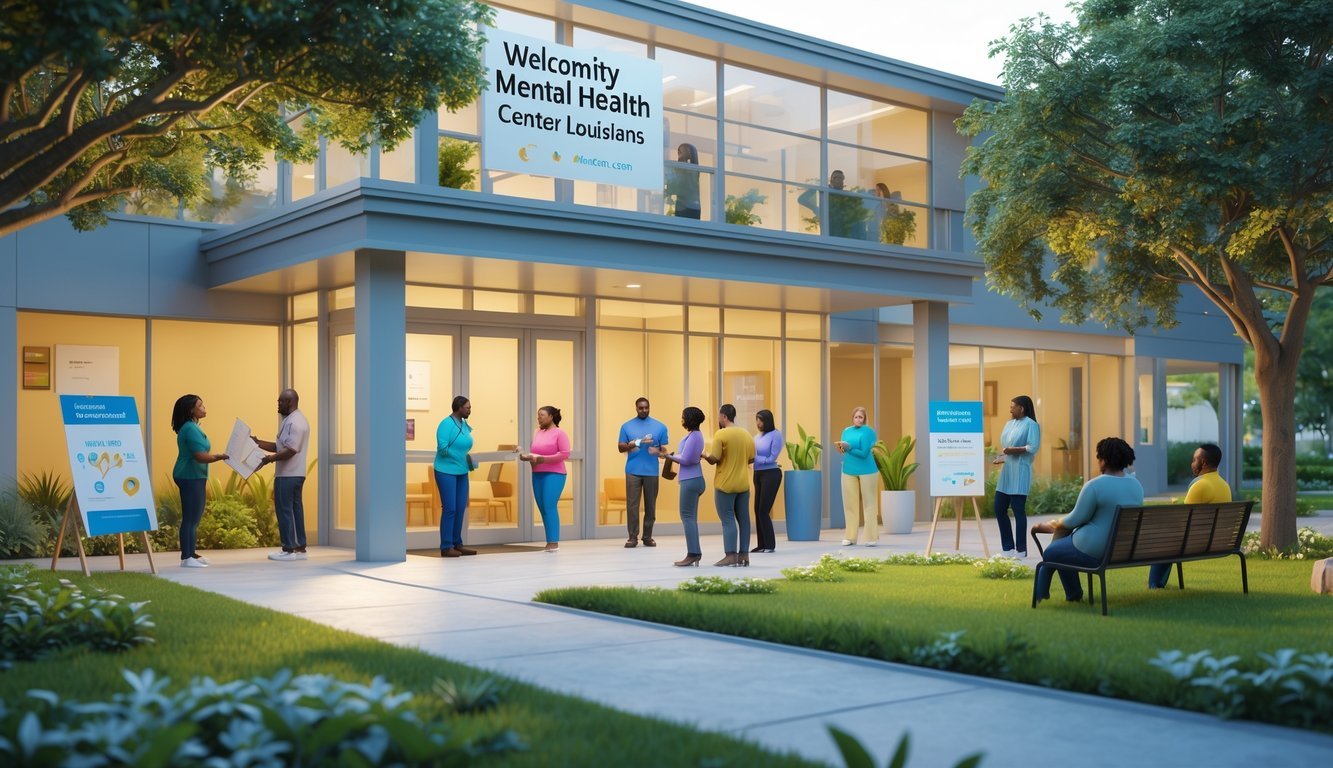
Getting free mental health care in Louisiana means knowing what paperwork you need, where to find providers, and how to get started. Most providers ask for proof of income and residency to see if you qualify for free or low-cost care.
You’ll need to meet certain income limits to get free mental health services in Louisiana. Most programs use federal poverty guidelines to figure out if you qualify.
You’ll usually need:
Income limits depend on the program and your family size. For one person, the limit is usually under $15,060 per year. A family of four qualifies if they make less than $31,200 a year.
Some programs accept people without all the documents. Community health centers often help regardless of your ability to pay or your immigration status.
The Louisiana Department of Health runs mental health centers all around the state. These centers provide free care to those who qualify.
Free provider types include:
LSU’s Psychological Services Center offers affordable mental health care, with graduate students providing therapy under supervision.
You can call 211 to find mental health resources nearby. This free service connects you to local programs and support groups.
Some providers have waiting lists. It helps to apply to more than one program so you can get help sooner.
Start by calling your nearest mental health center. Let them know you’re looking for free services and ask how to apply.
How the process usually works:
Most centers want you to come in for an intake session before you start therapy. This meeting helps staff figure out what kind of help you need and match you with the right person.
Be upfront about your income and mental health needs. Staff really do want to help you find care that fits your situation.
If a program can’t help, ask for referrals to other free services. Many centers keep lists of extra resources in your area.
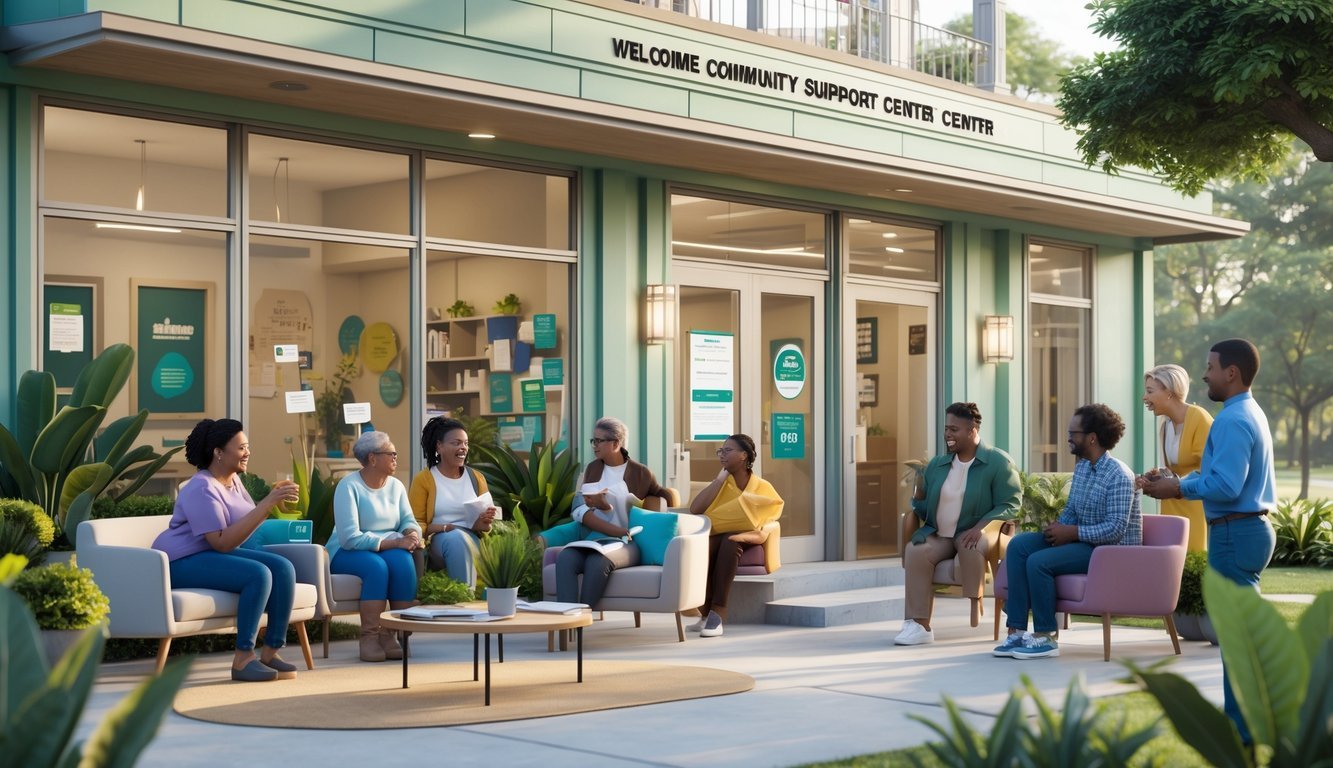
A handful of state and national organizations offer free mental health services in Louisiana. These groups provide crisis help, counseling, support groups, and links to local programs.
The Louisiana Department of Health runs several facilities offering free mental health care across the state. Eastern Louisiana Mental Health System serves people in the southeast from their Jackson location at 4502 Highway 951.
You can get crisis intervention, outpatient counseling, and case management at their locations. The department also runs community mental health centers in every parish.
Pinecrest Supports and Services Center helps people with intellectual and developmental disabilities who also have mental health needs. Their goal is to help clients move back into community living.
Services you’ll find:
The Metropolitan Human Services District covers the Greater New Orleans area with a range of mental health services. You can get help here even if you can’t pay.
They run several community mental health centers in Jefferson, Orleans, Plaquemines, and St. Bernard parishes. These centers offer therapy, group counseling, and psychiatric care.
The district has programs for kids, adults, and seniors. You can get help for depression, anxiety, bipolar disorder, and more.
What stands out:
NAMI Louisiana offers free support groups, education, and advocacy all over the state. You can join peer groups led by people who’ve been through mental health struggles themselves.
Their Family-to-Family program is a free 12-week course for families of people with mental illness. The Peer-to-Peer program offers similar support for folks living with mental health conditions.
If you’re a parent or caregiver of a child with mental health symptoms, you can join their NAMI Basics program. All of these programs are free.
What they provide:
The Substance Abuse and Mental Health Services Administration runs a national treatment locator and a 24/7 helpline. You can call 1-800-662-4357 for free, confidential treatment referrals in Louisiana.
Their online tool helps you find local places with sliding scale fees or options for people without insurance. The database lists community health centers, federally qualified health centers, and nonprofits.
SAMHSA also funds local Louisiana programs that offer free screening, brief intervention, and referrals. You can find these services at community centers, libraries, and health fairs.
The National Suicide Prevention Lifeline at 988 gives you access to local crisis counselors 24/7. It’s completely free and private.
Louisiana has specialized mental health services for different groups and situations. You can find support for veterans, students, and people with complex needs through state and community programs.
Veterans in Louisiana can get specialized mental health care through the Southeast Louisiana Healthcare System. The VA has mental health officers and psychology services for military-related trauma and conditions.
College students can use campus-based programs. UL Lafayette started Uwill, a 24/7 mental health program in April 2024. This service offers counseling, medication management, and crisis support.
Student stats:
Students from marginalized communities often deal with unique challenges because of structural inequities and institutional racism. Special resources are available for these needs.
The Eastern Louisiana Mental Health System uses an integrated care model. They handle multiple conditions at once, like mental health issues paired with substance abuse.
You’ll find over 693 licensed inpatient psychiatric beds here. The network also includes community residential settings and outpatient care.
Integrated services:
The Pinecrest Supports and Services Center provides rehab services through the Louisiana Department of Health. These programs focus on long-term recovery and building life skills.
Digital mental health services now reach people in Louisiana’s rural areas. The Uwill platform lets students connect with licensed counselors any time, whether it’s through video calls, phone sessions, or chat.
Remote service benefits:
State health systems set up telehealth appointments for ongoing mental health care. You can book virtual sessions with psychiatrists or therapists from providers who offer this option.
If you need emergency support, crisis hotlines stay open 24/7. These services put you in touch with trained counselors who offer quick help and local resource info.